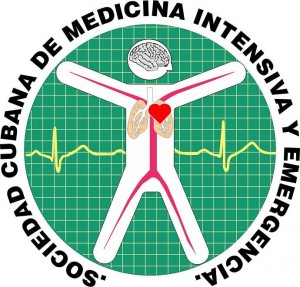Encephalitis due to antibodies against N-Methyl-D-Aspartate receptors
Keywords:
autoimmunity, encephalitis, N-Methyl-D-Aspartate receptorsAbstract
Introduction: Encephalitis due to anti-N-Methyl-D-Aspartate receptor antibodies is a predominant disease in young patients.
Objective: To describe the clinical course and treatment of a patient diagnosed with encephalitis due to anti-N-Methyl-D-Aspartate receptor antibodies.
Case report: This is the case of a 23 year-old female patient, operated on for atrial septal defect fifteen years ago. She was brought to the health center due to seizures, psychomotor excitement, auditory hallucinations and long-standing behavioral changes, with worsening in recent weeks. For diagnostic confirmation, the clinical criteria of probability and definitive (a posteriori) were met. The evolution was favorable by using the prescribed therapy.
Conclusions: Encephalitis due to anti-N-Methyl-D-Aspartate receptor antibodies is part of the autoimmune encephalitides and it is currently treatable. His clinic, characterized by neuropsychiatric symptoms, seizures and abnormal movements, should lead to suspect the possibility of this neurological disease. The clinical and analytical characteristics of the reported case agreed with the established diagnostic criteria. The prognosis is usually favorable, due to adequate response to immunosuppressive therapy, which occurred in the case reported.
Downloads
References
1. Furukawa H, Singh SK, Mancusso R, Gouaux E. Subunit arrangement and function in NMDA receptors. Nature. 2005;438(7065):185-92. Doi: https://doi.org/10.1038/nature04089
2. Flores-Soto ME. Structure and function of NMDA-type glutamate receptors subunits. Neurología. 2012;27(5):301-10. Doi: https://doi.org/10.1016/j.nrl.2011.10.014
3. Paoletti O. Molecular basis of NMDA receptor functional diversity. Eur J Neurosci. 2011;33(8):1351-65. Doi: https://doi.org/10.1111/j.1460-9568.2011.07628.x
4. Titulaer MJ, McCracken L, Gabilondo I, Armangué T, Glaser C, Iizuka T, et al. Treatment and prognostic factors for long-term outcome in patients with anti-NMDA receptor encephalitis: An observational cohort study. Lancet Neurol. 2013 [citado: 12/12/2020];12(2):157-65. Disponible en: https://pubmed.ncbi.nlm.nih.gov/23290630/
5. Dalmau J, Lancaster E, Martínez-Hernández E, Rosenfeld MR, Balice Gordon R. Clinical experience and laboratory investigations in patients with anti-NMDAR encephalitis. Lancet Neurol. 2011 [citado: 12/12/2020];10(1):63-74. Disponible en: https://pubmed.ncbi.nlm.nih.gov/21163445/
6. Graus F, Titulaer MJ, Balu R, Benseler S, Bien CG, Cellucci T, et al. A clinical approach to diagnosis of autoimmune encephalitis. Lancet Neurol. 2016 [citado: 12/12/2020];15(4):391-404. Disponible en: https://pubmed.ncbi.nlm.nih.gov/26906964/
7. Irani SR, Bera K, Waters P. NMDA antibody encephalitis: temporal progression of clinical and paraclinical observations in a predominantly non-paraneoplastic disorder of both sexes. Brain. 2010 [citado: 12/12/2020];133(6):1655-67. Disponible en: https://academic.oup.com/brain/article/133/6/1655/356918
8. Palomino H, De la Cruz W, Segura D, Delgado J. Encefalitis por anticuerpos contra receptores de N-metil-D-aspartato y síndrome de DRESS secundario a fenitoína. Rev Neuropsiquiatr. 2017 [citado: 12/12/2020];80(3):200-5. Disponible en: http://www.scielo.org.pe/scielo.php?script=sci_arttext&pid=S0034-85972017000300007
9. Salazar F, Saltos F, Cevallos J, Romero G. Encefalitis Autoinmune Anti-Receptor NMDA Reporte de Caso Clínico y Revisión de Literatura. Revista Ecuatoriana de Neurología. 2020 [citado: 12/12/2020];29(1):165-70. Disponible en: http://revecuatneurol.com/magazine_issue_article/encefalitis-autoinmune-anti-receptor-nmda-caso-clinico-revision-literatura-anti-nmda-receptor-encefalitis-case-report-review-literature/






